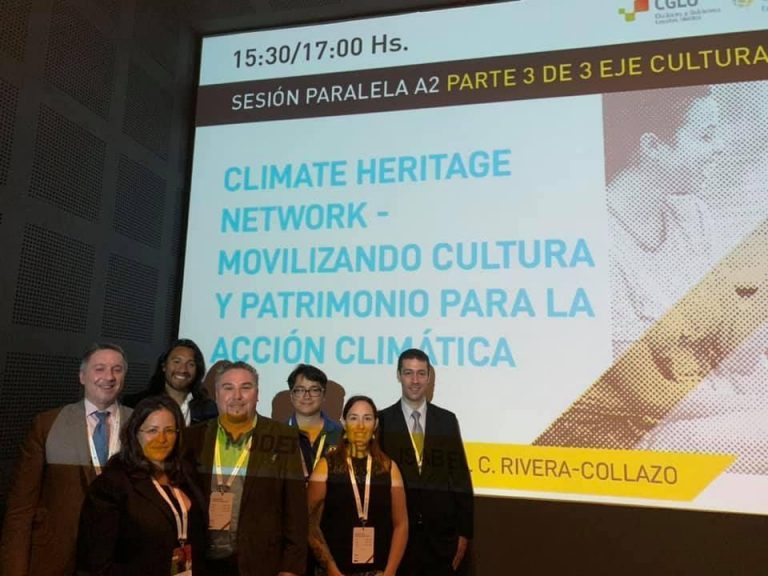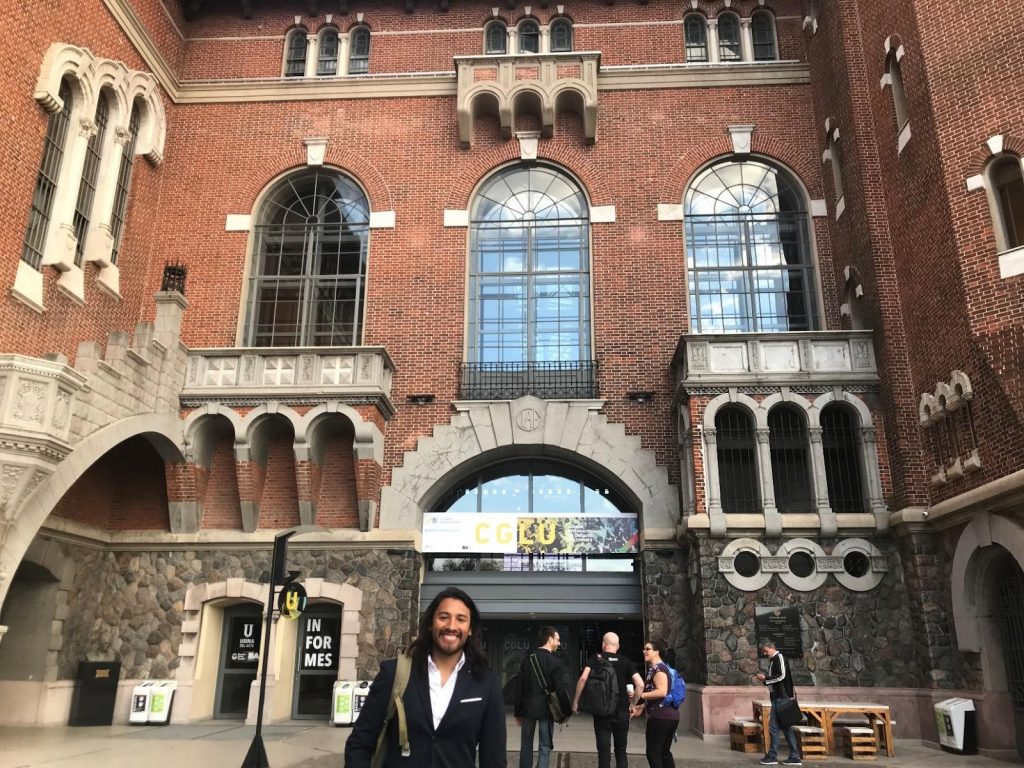Guest post by graduate student Eric Rodriguez. Eric traveled to Buenos Aires, Argentina to participate in the 3rd United Cities Local Governments (UCLG) Culture Summit with support from the Julia R. Brown Fund for Climate Change Research and Education.
This past spring, I was invited to participate in the “Mobilizing the Culture and Heritage Sectors for Climate Action” seminar during the 3rd United Cities Local Governments (UCLG) Culture Summit in Buenos Aires, Argentina held from April 3-5, 2019. Here, citizens, scientists, and legislators from around the globe joined together to exchange ideas, practices, and cultural policies that aim to mitigate carbon emissions and adapt to the changing climate of the Anthropocene. Amidst these discussions, the seminar set out to convey the importance and proven successes of cultural and heritage-based solutions to climatic effects. Presenting alongside my advisor Dr. Isabel Rivera-Collazo from Scripps Institution of Oceanography, I shared the experiences of the DUNAS Project – A sand dune restoration project that invites the communities of Northern Puerto Rico to join into these conversations of archaeology and sustainability of the Island.
As an active participant in these discussions, I found myself with a deeper recognition of the role of heritage and culture play in the creation of resilient cities. The models presented from Quito, Buenos Aires, and La Plata demonstrated the power that archaeology can contribute to the conversation of climate change by building communities centered around sustainability, their individual histories, and cultures. This seminar not only broadened my conceptions of heritage and resilience, but also brought a greater understanding of practical goals and policy-making approaches, needed to achieve heritage-based solutions. These lessons and conversations from the UCLG Culture summit have since motivated me to broaden my initiatives and pursue goals beyond the institution. Rather, I hope to promote long-lasting effects for endangered communities that would directly benefit from my research into community resistance and restoration in the face of rising sea-levels and climate change.



